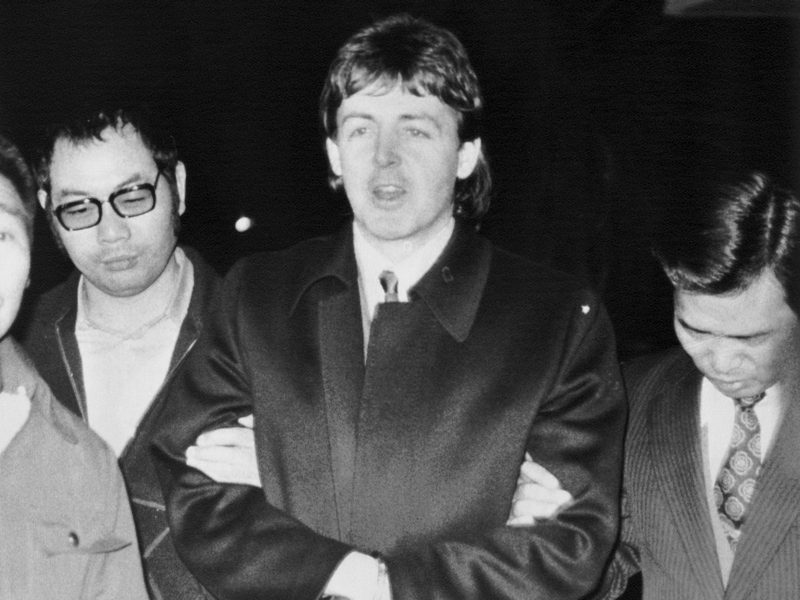
January 25, 2024, marks the 44th anniversary of Paul McCartney’s release from a Tokyo jail, an incident that remains one of the most bewildering chapters in the saga of a global music icon. It’s a story that melds the turbulence of fame with the stark reality of international law, underscoring the unpredictability of a rock star’s life.
Landing in Hot Water
The drama began on January 16, 1980, when McCartney arrived at Tokyo’s Narita International Airport with Wings, ready to embark on an extensive tour. The discovery of nearly half a pound of marijuana in his luggage abruptly halted these plans. McCartney later admitted that the decision to bring the drug was a combination of not wanting to waste good marijuana and underestimating Japan’s strict drug laws
Nine Days Behind Bars
McCartney’s ensuing nine-day stay in the Tokyo Narcotics Detention Center was a far cry from the stages he was accustomed to. He faced the possibility of a seven-year sentence for drug smuggling. While in detention, McCartney, known as Inmate No. 22, adopted a model prisoner persona, embracing the daily routine and participating in communal activities, including sing-alongs with fellow inmates. This period also saw McCartney engaging with his fans, who gathered outside the facility, turning the area into an impromptu concert venue of sorts
The Impact on Wings
The arrest had significant repercussions for Wings. The cancellation of the tour dealt a financial blow to the band members and marked the beginning of the end for the group. McCartney himself later reflected that the arrest served as a catalyst in his decision to disband Wings, a group he had formed in the wake of the Beatles’ breakup. In retrospect, McCartney saw Wings as having lost its initial allure, and the Tokyo incident cemented his feelings of disillusionment with the band
Reflections and Legacies
Years later, McCartney looked back at the incident with a mix of candidness and introspection. He acknowledged the foolishness of his decision and the immense pressure and challenges he faced during that period. The Tokyo jail episode stands as a stark reminder of the fragility of fame and the consequences of a public figure’s actions. It also highlights McCartney’s resilience and ability to bounce back from a potentially career-damaging situation.
As we commemorate the 44th anniversary of McCartney’s release, the Tokyo incident remains a testament to the unpredictability of life, even for the most celebrated and successful individuals. It’s a chapter in rock history that continues to intrigue and educate, underscoring the complex interplay of fame, personal challenges, and the law.
This story of McCartney’s unexpected Japanese detour serves as a reminder of the highs and lows that define the human experience, regardless of one’s status or achievements.




Leave a Reply